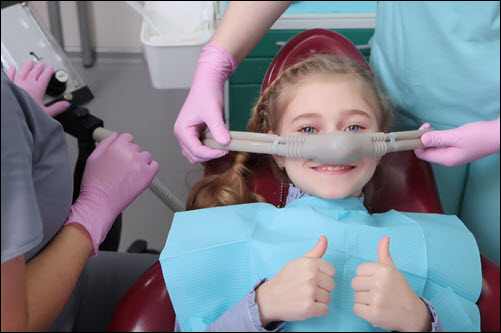For many individuals, the thought of visiting the dentist can trigger feelings of anxiety and apprehension. Whether due to past experiences or general fear, dental anxiety is a real concern that can prevent people from seeking necessary dental care. Fortunately, modern dentistry offers a range of sedation options to help alleviate anxiety and make dental appointments a more comfortable experience. In this blog post, we’ll explore how sedation can be used to ease dental anxiety and provide valuable insights for those considering this option.
Understanding Dental Anxiety:
Dental anxiety is a common issue that affects people of all ages. It can stem from various factors, such as fear of pain, a negative past experience, the sound of dental instruments, or simply feeling out of control in the dental chair. Regardless of the cause, dental anxiety can lead to avoidance of dental visits, which can further worsen oral health issues.
The Role of Sedation:
Sedation dentistry involves the use of medication to help patients relax during dental procedures. It can be a game-changer for individuals who experience heightened levels of anxiety or have difficulty tolerating dental treatments. Sedation doesn’t necessarily induce sleep; instead, it calms the nerves and reduces anxiety, allowing patients to undergo necessary procedures without stress.
Types of Sedation:
 There are different levels of sedation available, ranging from mild to deep sedation. The type of sedation used will depend on the patient’s level of anxiety and the complexity of the procedure. Here are some common types of sedation used in dentistry:
There are different levels of sedation available, ranging from mild to deep sedation. The type of sedation used will depend on the patient’s level of anxiety and the complexity of the procedure. Here are some common types of sedation used in dentistry:
Nitrous Oxide (Laughing Gas): This is a mild sedative that is inhaled through a mask. It induces a sense of relaxation and euphoria, making the patient feel more comfortable during the procedure. The effects wear off quickly, allowing patients to drive themselves home afterward.
Oral Sedation: Oral sedatives are taken in pill form before the appointment. They provide a higher level of sedation than nitrous oxide and can make patients feel drowsy or even fall asleep during the procedure.
Intravenous (IV) Sedation: Administered through a vein, IV sedation allows the dentist to adjust the level of sedation as needed. Patients remain conscious but are often in a state of deep relaxation, and they may have little to no memory of the procedure afterward.
General Anesthesia: This is the deepest form of sedation, usually reserved for complex or invasive procedures. Patients are fully unconscious and unable to respond during the procedure. It’s typically administered in a hospital setting.
Benefits of Sedation Dentistry:
Reduced Anxiety: The primary benefit of sedation is its ability to significantly reduce dental anxiety, making it easier for patients to undergo treatment.
Increased Comfort: Sedation allows patients to experience minimal discomfort or pain during procedures, enhancing their overall comfort.
Faster Treatment: Because patients are more relaxed, dentists can often complete treatments more efficiently, leading to shorter appointment times.
Improved Oral Health: By overcoming anxiety and receiving necessary treatments, patients can improve their oral health and prevent further complications.
Is Sedation Right for You?
If you struggle with dental anxiety or have avoided necessary treatments due to fear, sedation dentistry might be a suitable option for you. Before opting for any sedation, it’s important to discuss your concerns with your dentist. They will assess your medical history and anxiety levels to determine the most appropriate sedation option for your specific needs.
Dental anxiety doesn’t need to be an insurmountable barrier to achieving optimal oral health. Sedation dentistry offers a pathway to a stress-free and comfortable dental experience, allowing you to prioritize your oral well-being without unnecessary fear or apprehension. Remember, open communication with your dentist is key to finding the right solution for your anxiety-related concerns. Your journey toward a healthier smile can start with a more relaxed and anxiety-free dental appointment. Learn more about the treatments and procedures we offer by visiting our Services Page.

